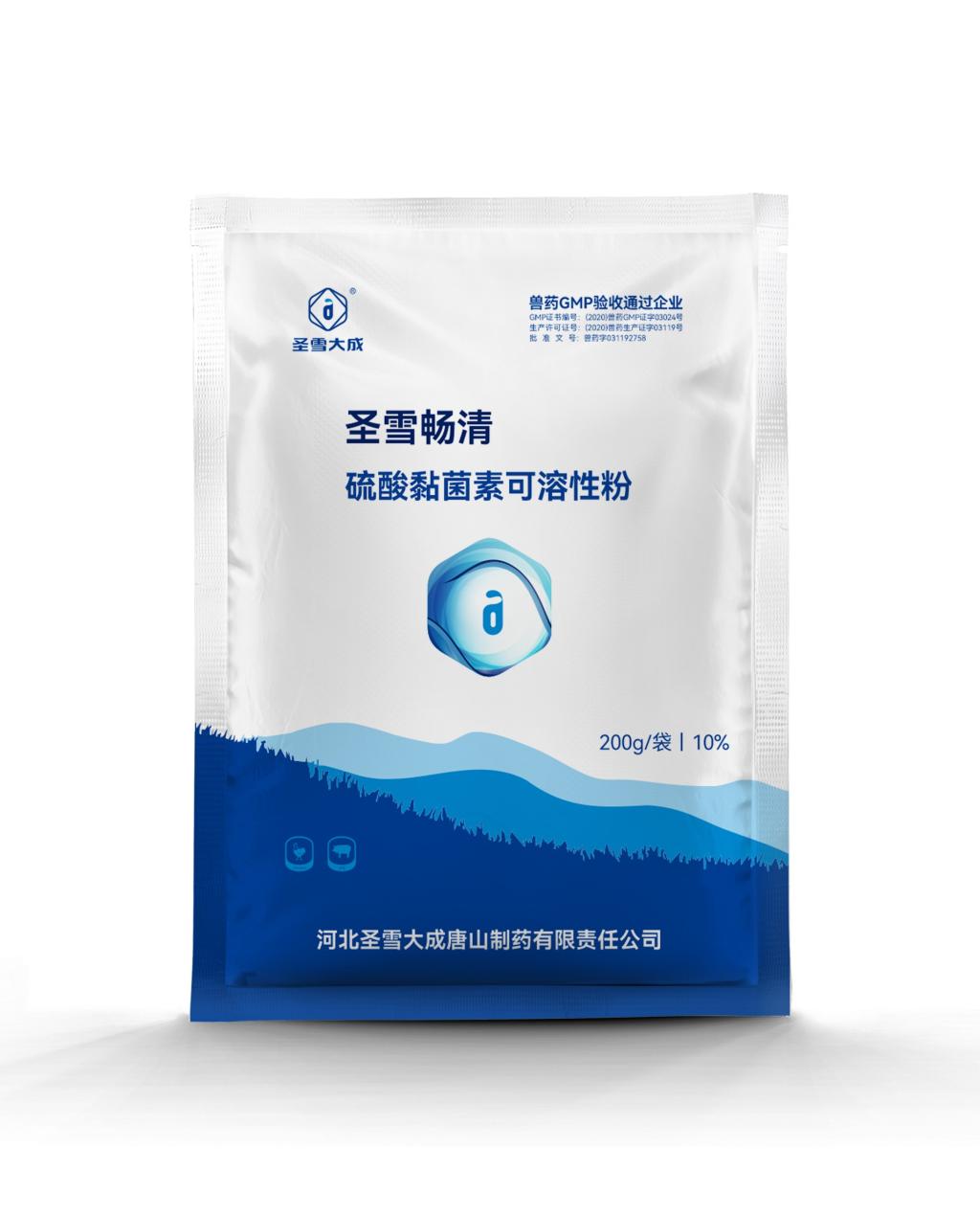Tel:0086 18231198596

News
Current Position:
Home >
News
>Responsible Use: Guidelines for Administering Colistin Sulfate Soluble Powder.
Responsible Use: Guidelines for Administering Colistin Sulfate Soluble Powder.
TIME:2024-01-03
Understanding Colistin Sulfate:
Before delving into guidelines, it's crucial to have a clear understanding of colistin sulfate. Colistin belongs to the polymyxin class of antibiotics and is effective against a broad spectrum of bacteria. It is commonly used in veterinary medicine, especially in livestock and poultry, for disease prevention and growth promotion.
Responsible Use Principles:
a. Prudent Use:
Prudent use involves administering antibiotics only when necessary and at the correct dosage. The goal is to maximize therapeutic benefits while minimizing the risk of antibiotic resistance.
b. Veterinary Oversight:
All use of colistin sulfate should be under the supervision of a licensed veterinarian. Veterinarians play a crucial role in diagnosing bacterial infections, prescribing appropriate treatments, and ensuring responsible antibiotic use.
c. Surveillance and Monitoring:
Regular surveillance and monitoring of antibiotic use on farms are essential. Keeping detailed records of the type, dosage, and duration of colistin sulfate treatments allows for better tracking and assessment of usage patterns.
Disease Prevention Strategies:
a. Biosecurity Measures:
Implementing robust biosecurity measures helps prevent the spread of infectious diseases on farms. Adequate isolation of sick animals, proper sanitation, and restricted access to the farm can reduce the need for therapeutic use of colistin sulfate.
b. Vaccination Programs:
Effective vaccination programs contribute to disease prevention, reducing the reliance on antibiotics. Consult with a veterinarian to establish appropriate vaccination schedules tailored to the specific needs of the animal population.
Dosage Optimization:
a. Adherence to Recommended Dosages:
It is imperative to adhere strictly to recommended dosages provided by veterinarians. Under-dosing may lead to treatment failure, while over-dosing increases the risk of antibiotic resistance.
b. Individualized Treatment Plans:
Develop individualized treatment plans for animals based on factors such as weight, age, and health status. Avoid blanket treatments for entire herds or flocks unless supported by evidence of widespread infection.
Alternatives and Complementary Therapies:
a. Probiotics and Prebiotics:
Consider incorporating probiotics and prebiotics into animal diets to promote a healthy gut microbiome. These alternatives can enhance overall health and may reduce the need for therapeutic antibiotics.
b. Integrated Pest Management:
Addressing environmental factors that contribute to disease spread, such as controlling vectors and optimizing housing conditions, supports overall animal health and reduces the reliance on antibiotics.
Precision Medicine Practices:
a. Diagnostic Accuracy:
Invest in rapid and accurate diagnostic tools to identify bacterial infections. Precision medicine practices enable targeted antibiotic treatments, minimizing the use of broad-spectrum antibiotics like colistin sulfate.
b. Antibiotic Sensitivity Testing:
Conduct antibiotic sensitivity testing to determine the most effective antibiotic for a particular bacterial strain. This approach aids in selecting the appropriate antibiotic, optimizing treatment outcomes, and minimizing resistance development.
Withdrawal Periods and Residue Management:
a. Adherence to Withdrawal Periods:
Respect withdrawal periods specified for colistin sulfate to ensure that residues are not present in animal products intended for human consumption. Strict adherence to withdrawal periods is critical for food safety.
b. Responsible Disposal:
Dispose of unused colistin sulfate and its packaging responsibly to prevent environmental contamination. Follow local regulations for proper disposal of veterinary pharmaceuticals.
Record-Keeping and Reporting:
a. Detailed Record-Keeping:
Maintain comprehensive records of all colistin sulfate treatments, including dates, dosages, and reasons for administration. Accurate record-keeping facilitates transparency, monitoring, and assessment of antibiotic use practices.
b. Reporting Adverse Reactions:
Promptly report any adverse reactions or treatment failures to the veterinarian. Timely reporting contributes to ongoing assessments of antibiotic efficacy and potential emergence of resistant strains.
Continuous Education and Training:
a. Veterinarian Training:
Continuously educate and train veterinarians on responsible antibiotic use practices. Keep them informed about the latest research, guidelines, and alternatives to ensure they can make informed decisions in their prescribing practices.
b. Farmer Education:
Educate farmers on the importance of responsible antibiotic use, emphasizing the potential consequences of misuse. Encourage collaboration between farmers and veterinarians to establish farm-specific antibiotic use protocols.
Regulatory Compliance:
a. Adherence to Regulatory Standards:
Comply with local and national regulations governing the use of colistin sulfate and other antibiotics. Regulatory bodies establish guidelines to ensure the responsible use of antibiotics and mitigate risks to public health.
b. Engagement with Regulatory Authorities:
Engage with regulatory authorities to stay informed about changes in regulations related to antibiotic use. Collaborative efforts between stakeholders and regulatory bodies are crucial for shaping responsible use practices.
Conclusion:
Responsible use of colistin sulfate soluble powder in veterinary medicine is paramount to preserving its efficacy and mitigating the risks of antibiotic resistance. By adhering to the outlined guidelines, veterinarians, farmers, and regulatory authorities can collectively contribute to sustainable and ethical practices in animal healthcare. Striking a balance between disease prevention, precision medicine, and alternatives to antibiotics ensures a responsible approach that prioritizes both animal health and public health.

 CONTACT
CONTACT




